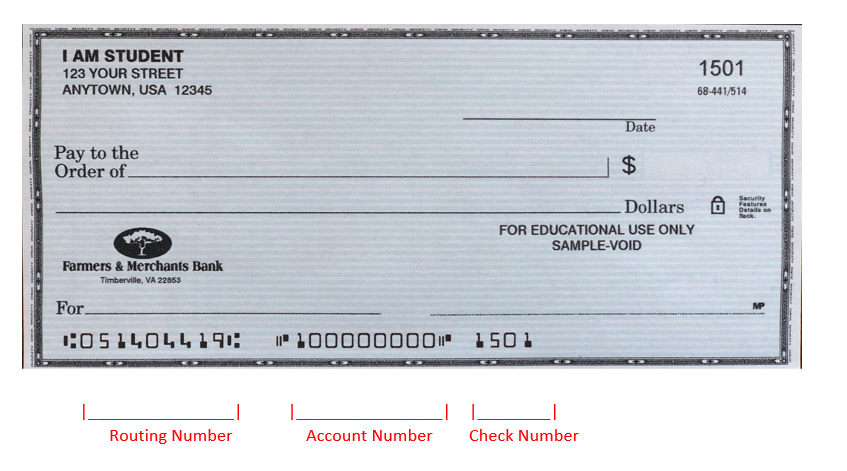F & M Bank Corp. Announces Record Quarterly Earnings & Reaches $1 Billion In Assets In First Quarter 2021
News and Financials |
F & M Bank Corp. Announces Record Quarterly Earnings & Reaches $1 Billion In Assets In First Quarter 2021
Contact: Carrie Comer, EVP/Chief Financial Officer, (540) 896-1705 or ccomer@fmbankva.com
TIMBERVILLE, VA—April 26, 2021—F & M Bank Corp. (OTCQX: FMBM), parent company of Farmers & Merchants Bank today reported net income available to common shareholders of $3.8 million and diluted earnings per common share of $1.11 for the first quarter ending March 31, 2021.
Record Quarterly Earnings
The bank is reporting record quarterly earnings in the first quarter of 2021 of $3.8 million while continuing to position the company for success over the long term. F&M Bank continues to strengthen its solid financial position with historic levels of liquidity and historically strong capital base as we grew to over $1 Billion in Assets.
“With continued strong asset quality metrics and improved optimism for economic recovery due to COVID-19 vaccines and government stimulus, we believe that credit losses will not be as high as initially anticipated and that loan growth will continue to improve. Coupled with the significant growth in our client base over the past year, we remain optimistic that F&M Bank is well positioned to deliver profitable growth and continue to build long term value for our shareholders,” said Mark Hanna, president and chief executive officer.
Non-Interest Income
Noninterest income increased to $3.4 million for the quarter ended March 31, 2021 from $3.2 million in the prior quarter and $2.4 million in the quarter ended March 31, 2020. Growth is primarily driven by continued high volumes of mortgage originations, growth in our wealth management division, and title division. Volumes in these areas more than offset the decreases in deposit service charges.
Paycheck Protection Program (“PPP”) & CARES Act
During 2021, the Company processed 280 Paycheck Protection Program (PPP) loans that totaled $20.2 million; PPP loans processed during 2020 and 2021 YTD totaled 997 loans for $83.4 million. In addition to an insignificant amount of PPP loan payoffs, the Company has processed a total of $46.4 million of forgiveness on 560 loans program to date resulting in a remaining balance of PPP loans of $37.0 million. The Company is continuing to accept PPP applications, and processing applications for forgiveness.
In addition, we have granted 35 individual loan deferrals in 2021, for a total of 1,266 deferrals since COVID began. As of March 31, 2021, 52 loans remain in deferral with a balance of $11.8 million or 1.7% of total loans.
Waynesboro Branch Opening & Branch Lobbies Reopen
The bank is set to open a new branch in the Waynesboro market on April 26, 2021. This will expand our presence in Augusta County to serve the community’s financial needs with our full suite of branch services. Branch lobbies at all our locations were reopened to the public on April 12, 2021. We will continue to assess our procedures to maintain the safety of our customers, employees, and community as we move forward.
Selected financial highlights for the quarter include:
- Quarterly net income of $3.8 million
- Net interest margin of 3.44%.
- Total deposits increased $44.2 million and $183.4 million, respectively for the quarter and for the trailing 12 months as the bank continues to grow our composition of DDA accounts and decrease balances of Time Deposits.
- Total loans increased $12.8 million for the trailing 12 months (excluding PPP loans).
- Nonperforming assets decreased to 0.57% of total assets at the end of the quarter from 0.68% on 12/31/20 and .66% on 3/31/20.
- Negative Provision for Loan Losses of $725,000
- Allowance for loan losses totaled 1.46% of loans held for investment (1.54% excluding PPP loans).
Mark Hanna, President, commented “We are pleased with first quarter earnings of $3.8 million. Our mortgage and title companies, continue to see volumes in excess of expectations which drives noninterest income growth. Our net interest margin of 3.44% shows a historical decline but remains strong especially given the changes in our balance sheet and the current rate environment. Net interest income reflected a 4% increase over March 31, 2020. F&M’s liquidity has increased significantly over the last four quarters and we are implementing strategic solutions to leverage these assets including deploying $64.2 million into the investment portfolio since year end 2020. Despite the current low-rate environment, these strategies should augment our net interest margin in the future.”
Mr. Hanna stated, “Nonperforming assets have continued to improve, decreasing $754 thousand since year end 2020. We feel these efforts put F&M in a strong position to leverage a more optimistic economic forecast while seeking opportunities for continued growth in the communities we serve.”
On April 21, 2021 our Board of Directors declared a first quarter dividend of $.26 per share to common shareholders. Based on our most recent trade price of $28.19 per share this constitutes a 3.69% yield on an annualized basis. The dividend will be paid on May 31, 2021, to shareholders of record as of May 15, 2021.”
F & M Bank Corp. is an independent, locally-owned, financial holding company, offering a full range of financial services, through its subsidiary, Farmers & Merchants Bank’s eleven banking offices in Rockingham, Shenandoah, Page and Augusta Counties, Virginia. The Bank also provides additional services through a loan production office located in Penn Laird, VA and through its subsidiaries, F&M Mortgage and VSTitle, both of which are located in Harrisonburg, VA. Additional information may be found by contacting us on the internet at www.fmbankva.com or by calling (540) 896-1705.
This press release may contain “forward-looking statements” as defined by federal securities laws, which may involve significant risks and uncertainties. These statements address issues that involve risks, uncertainties, estimates and assumptions made by management, and actual results could differ materially from the results contemplated by these forward-looking statements. Factors that could have a material adverse effect on our operations and future prospects include, but are not limited to, changes in interest rates, general economic conditions, legislative and regulatory policies, and a variety of other matters. Other risk factors are detailed from time to time in our Securities and Exchange Commission filings. Readers should consider these risks and uncertainties in evaluating forward-looking statements and should not place undue reliance on such statements. We undertake no obligation to update these statements following the date of this press release.
F & M Bank Corp. Key Statistics
(1) The net interest margin is calculated by dividing tax equivalent net interest income by total average earning assets. Tax equivalent interest income is calculated by grossing up interest income for the amounts that are nontaxable (i.e. municipal securities and loan income) then subtracting interest expense. The tax rate utilized is 21%. The Company’s net interest margin is a common measure used by the financial service industry to determine how profitable earning assets are funded. Because the Company earns nontaxable interest income from municipal loans and securities, net interest income for the ratio is calculated on a tax equivalent basis as described above. (2) The efficiency ratio is not a measurement under accounting principles generally accepted in the United States. The efficiency ratio is a common measure used by the financial service industry to determine operating efficiency. It is calculated by dividing non-interest expense by the sum of tax equivalent net interest income and non-interest income excluding gains and losses on the investments portfolio and Other Real Estate Owned. The Company calculates this ratio in order to evaluate how efficiently it utilizes its operating structure to create income. An increase in the ratio from period to period indicates the Company is losing a greater percentage of its income to expenses.
F & M Bank Corp. Financial Highlights |
|||||||||||||||||||||||||||||||||||||||||||||||||||||||||||||||||||||||||||||||||||||||||||||||||||||||||||||||||||||||||||||||||||||||||||||||||||||||||||||||||||||||||||
|
|
For Three Months Ended March 31, | ||||||||||||||||||||||||||||||||||||||||||||||||||||||||||||||||||||||||||||||||||||||||||||||||||||||||||||||||||||||||||||||||||||||||||||||||||||||||||||||||||||||||||
| INCOME STATEMENT | Unaudited 2021 | Audited 2020 | |||||||||||||||||||||||||||||||||||||||||||||||||||||||||||||||||||||||||||||||||||||||||||||||||||||||||||||||||||||||||||||||||||||||||||||||||||||||||||||||||||||||||
| Interest and Dividend Income | $8,746,348 | $9,110,585 | |||||||||||||||||||||||||||||||||||||||||||||||||||||||||||||||||||||||||||||||||||||||||||||||||||||||||||||||||||||||||||||||||||||||||||||||||||||||||||||||||||||||||
| Interest Expense | 1,068,509 | 1,706,084 | |||||||||||||||||||||||||||||||||||||||||||||||||||||||||||||||||||||||||||||||||||||||||||||||||||||||||||||||||||||||||||||||||||||||||||||||||||||||||||||||||||||||||
| Net Interest Income | 7,677,839 | 7,404,501 | |||||||||||||||||||||||||||||||||||||||||||||||||||||||||||||||||||||||||||||||||||||||||||||||||||||||||||||||||||||||||||||||||||||||||||||||||||||||||||||||||||||||||
| Non-Interest IncomeProvision for Loan Losses
Other Non-Interest Expenses |
3,355,044(725,000)
7,685,337 |
2,428,5181,500,000
7,119,604 |
|||||||||||||||||||||||||||||||||||||||||||||||||||||||||||||||||||||||||||||||||||||||||||||||||||||||||||||||||||||||||||||||||||||||||||||||||||||||||||||||||||||||||
| Income Before Income Taxes | 4,072,546 | 1,213,415 | |||||||||||||||||||||||||||||||||||||||||||||||||||||||||||||||||||||||||||||||||||||||||||||||||||||||||||||||||||||||||||||||||||||||||||||||||||||||||||||||||||||||||
| Provision for Income TaxesLess Minority Interest (income)/loss | 271,294 | (38,371) (62,429) | |||||||||||||||||||||||||||||||||||||||||||||||||||||||||||||||||||||||||||||||||||||||||||||||||||||||||||||||||||||||||||||||||||||||||||||||||||||||||||||||||||||||||
| Net Income | $3,801,252 | $1,189,357 | |||||||||||||||||||||||||||||||||||||||||||||||||||||||||||||||||||||||||||||||||||||||||||||||||||||||||||||||||||||||||||||||||||||||||||||||||||||||||||||||||||||||||
| Dividend on preferred stock | 65.448 | 65,873 | |||||||||||||||||||||||||||||||||||||||||||||||||||||||||||||||||||||||||||||||||||||||||||||||||||||||||||||||||||||||||||||||||||||||||||||||||||||||||||||||||||||||||
| Net Income available to common shareholders | $3.735.804 | $1,123,494 | |||||||||||||||||||||||||||||||||||||||||||||||||||||||||||||||||||||||||||||||||||||||||||||||||||||||||||||||||||||||||||||||||||||||||||||||||||||||||||||||||||||||||
| Average Common Shares Outstanding | 3,205,074 | 3,204,084 | |||||||||||||||||||||||||||||||||||||||||||||||||||||||||||||||||||||||||||||||||||||||||||||||||||||||||||||||||||||||||||||||||||||||||||||||||||||||||||||||||||||||||
| Net Income Per Common ShareDividends Declared | 1.17.26 | .35.26 | |||||||||||||||||||||||||||||||||||||||||||||||||||||||||||||||||||||||||||||||||||||||||||||||||||||||||||||||||||||||||||||||||||||||||||||||||||||||||||||||||||||||||
| BALANCE SHEET | Unaudited March 31, 2021 | Audited March 31, 2020 | |||||||||||||||||||||||||||||||||||||||||||||||||||||||||||||||||||||||||||||||||||||||||||||||||||||||||||||||||||||||||||||||||||||||||||||||||||||||||||||||||||||||||
| Cash and Due from Banks | $12,088,442 | $8,528,494 | |||||||||||||||||||||||||||||||||||||||||||||||||||||||||||||||||||||||||||||||||||||||||||||||||||||||||||||||||||||||||||||||||||||||||||||||||||||||||||||||||||||||||
| Interest Bearing Bank Deposits | 1,541,581 | 1,645,590 | |||||||||||||||||||||||||||||||||||||||||||||||||||||||||||||||||||||||||||||||||||||||||||||||||||||||||||||||||||||||||||||||||||||||||||||||||||||||||||||||||||||||||
| Federal Funds Sold | 90,099,000 | 78,944,000 | |||||||||||||||||||||||||||||||||||||||||||||||||||||||||||||||||||||||||||||||||||||||||||||||||||||||||||||||||||||||||||||||||||||||||||||||||||||||||||||||||||||||||
| Loans Held for SaleLoans Held for Investment | 15,922,810659,373,490 | 60,765,429609,585,135 | |||||||||||||||||||||||||||||||||||||||||||||||||||||||||||||||||||||||||||||||||||||||||||||||||||||||||||||||||||||||||||||||||||||||||||||||||||||||||||||||||||||||||
| Less Allowance for Loan Losses | (9,704,286) | (9,437,359) | |||||||||||||||||||||||||||||||||||||||||||||||||||||||||||||||||||||||||||||||||||||||||||||||||||||||||||||||||||||||||||||||||||||||||||||||||||||||||||||||||||||||||
| Net Loans Held for Investment | 649,669,204 | 600,147,776 | |||||||||||||||||||||||||||||||||||||||||||||||||||||||||||||||||||||||||||||||||||||||||||||||||||||||||||||||||||||||||||||||||||||||||||||||||||||||||||||||||||||||||
| Securities | 182,091,328 | 19,838,180 | |||||||||||||||||||||||||||||||||||||||||||||||||||||||||||||||||||||||||||||||||||||||||||||||||||||||||||||||||||||||||||||||||||||||||||||||||||||||||||||||||||||||||
| Other Assets | 58,817,489 | 57,597,524 | |||||||||||||||||||||||||||||||||||||||||||||||||||||||||||||||||||||||||||||||||||||||||||||||||||||||||||||||||||||||||||||||||||||||||||||||||||||||||||||||||||||||||
| Total Assets | $1,010,229,854 | $828,466,993 | |||||||||||||||||||||||||||||||||||||||||||||||||||||||||||||||||||||||||||||||||||||||||||||||||||||||||||||||||||||||||||||||||||||||||||||||||||||||||||||||||||||||||
| Deposits | $862,751,952 | $679,310,203 | |||||||||||||||||||||||||||||||||||||||||||||||||||||||||||||||||||||||||||||||||||||||||||||||||||||||||||||||||||||||||||||||||||||||||||||||||||||||||||||||||||||||||
| Long Term Debt | 32,158,578 | 42,089,286 | |||||||||||||||||||||||||||||||||||||||||||||||||||||||||||||||||||||||||||||||||||||||||||||||||||||||||||||||||||||||||||||||||||||||||||||||||||||||||||||||||||||||||
| Other Liabilities | 17,791,953 | 15,633,317 | |||||||||||||||||||||||||||||||||||||||||||||||||||||||||||||||||||||||||||||||||||||||||||||||||||||||||||||||||||||||||||||||||||||||||||||||||||||||||||||||||||||||||
| Total Liabilities | 912,702,483 | 737,032,806 | |||||||||||||||||||||||||||||||||||||||||||||||||||||||||||||||||||||||||||||||||||||||||||||||||||||||||||||||||||||||||||||||||||||||||||||||||||||||||||||||||||||||||
| Preferred Stock | 4,558,298 | 4,591,623 | |||||||||||||||||||||||||||||||||||||||||||||||||||||||||||||||||||||||||||||||||||||||||||||||||||||||||||||||||||||||||||||||||||||||||||||||||||||||||||||||||||||||||
| Common Equity | 92,969,073 | 86,842,564 | |||||||||||||||||||||||||||||||||||||||||||||||||||||||||||||||||||||||||||||||||||||||||||||||||||||||||||||||||||||||||||||||||||||||||||||||||||||||||||||||||||||||||
| Stockholders’ Equity | 97,527,371 | 91,434,187 | |||||||||||||||||||||||||||||||||||||||||||||||||||||||||||||||||||||||||||||||||||||||||||||||||||||||||||||||||||||||||||||||||||||||||||||||||||||||||||||||||||||||||
| Total Liabilities and Stockholders’ Equity | $1,010,229,854 | $828,466,993 | |||||||||||||||||||||||||||||||||||||||||||||||||||||||||||||||||||||||||||||||||||||||||||||||||||||||||||||||||||||||||||||||||||||||||||||||||||||||||||||||||||||||||
| Book Value Per Common Share | $28.99 | $27.20 | |||||||||||||||||||||||||||||||||||||||||||||||||||||||||||||||||||||||||||||||||||||||||||||||||||||||||||||||||||||||||||||||||||||||||||||||||||||||||||||||||||||||||
| Tangible Book Value Per Common Share | $29.33 | $26.05 | |||||||||||||||||||||||||||||||||||||||||||||||||||||||||||||||||||||||||||||||||||||||||||||||||||||||||||||||||||||||||||||||||||||||||||||||||||||||||||||||||||||||||
Source: F & M Bank Corp.
Contact: Carrie Comer EVP/Chief Financial Officer, (540) 896-1705 or ccomer@fmbankva.com






















